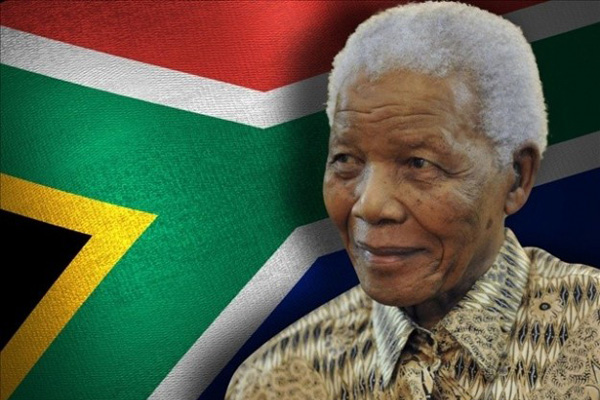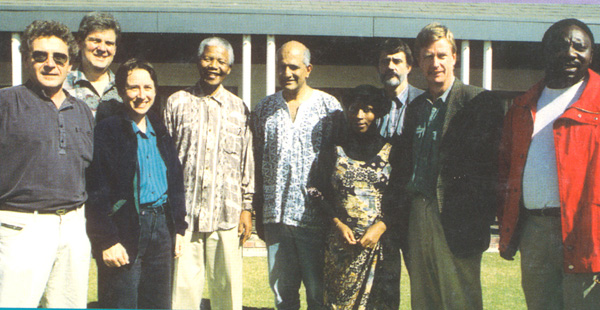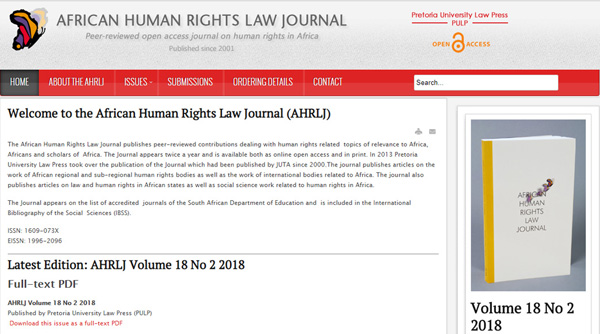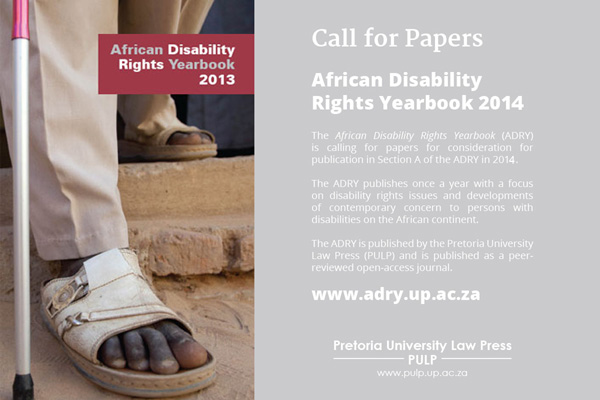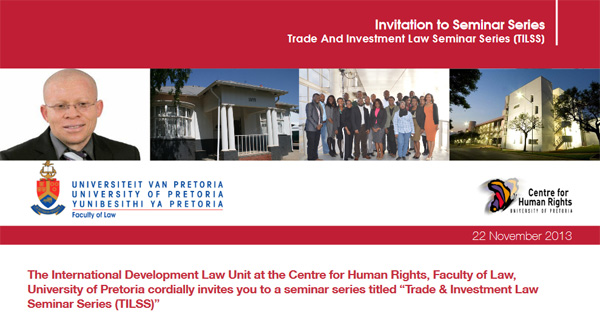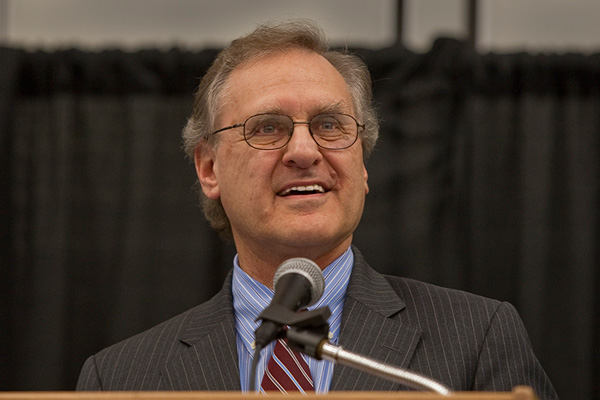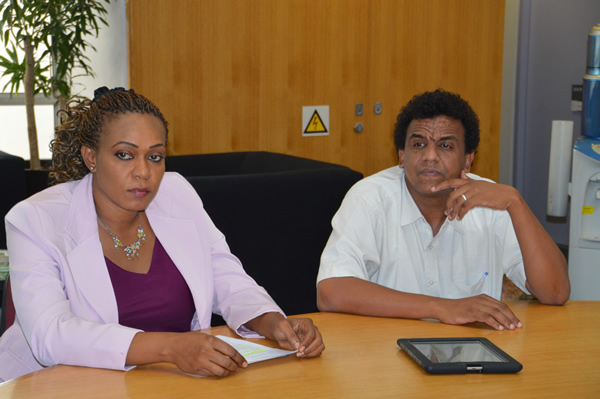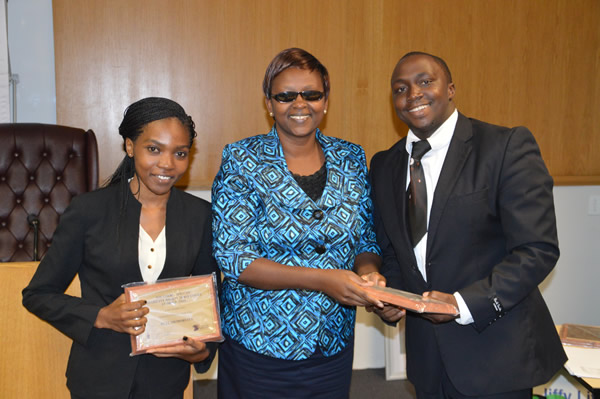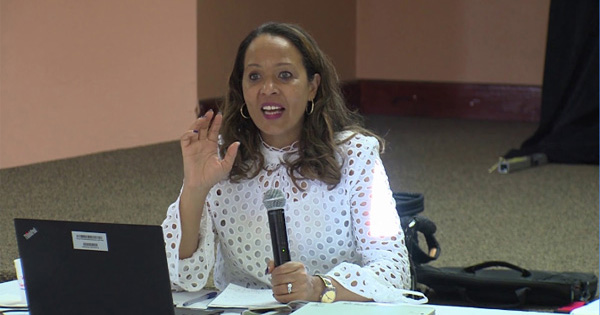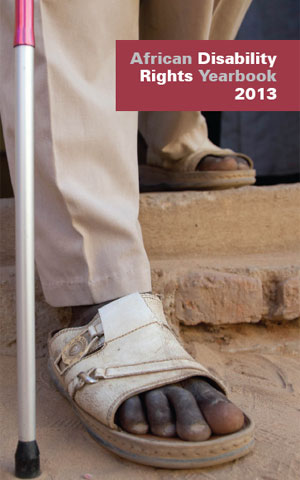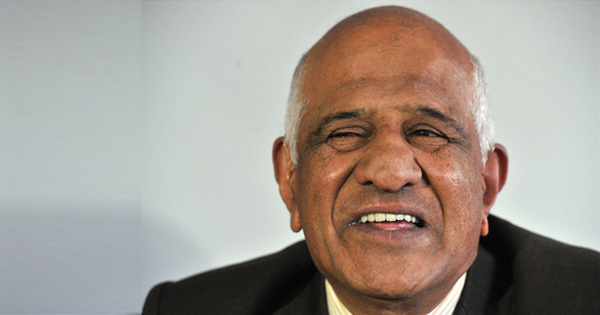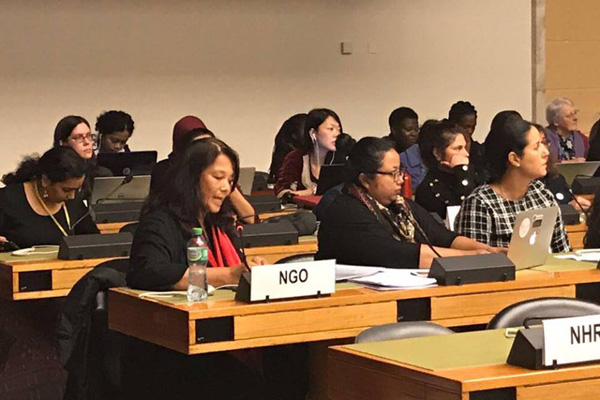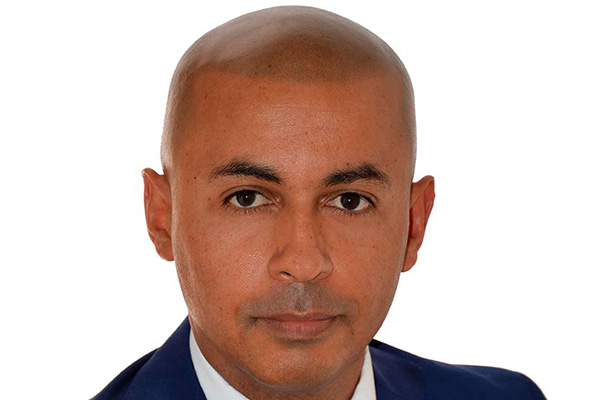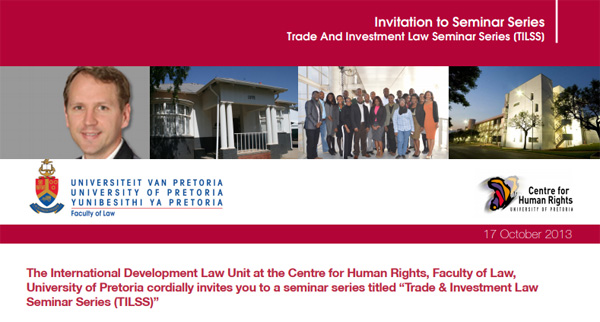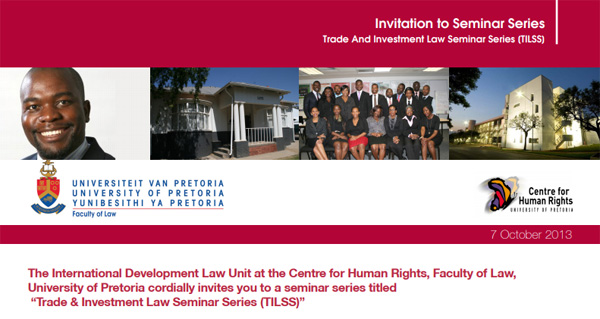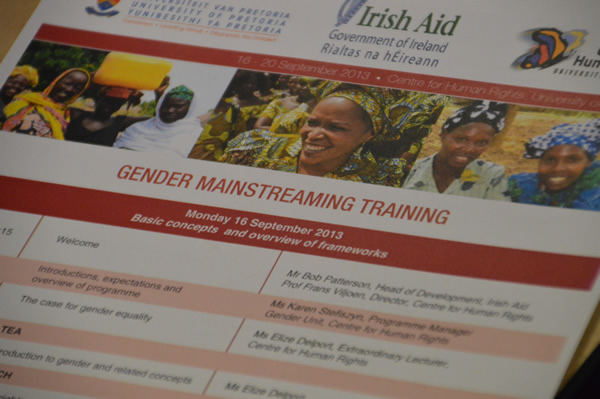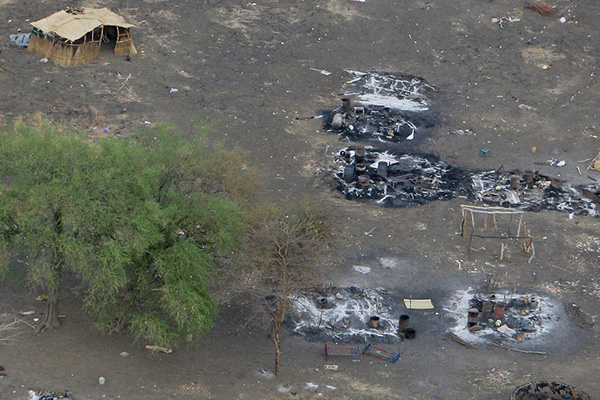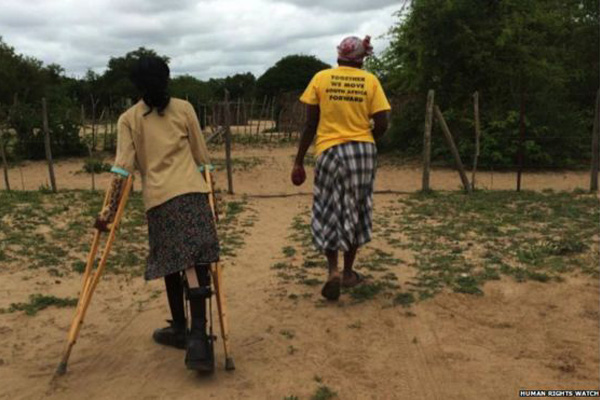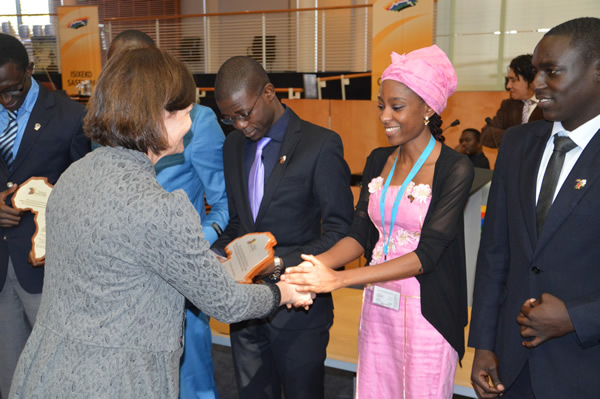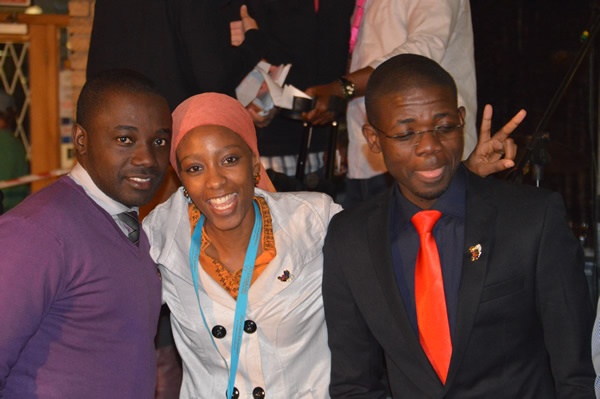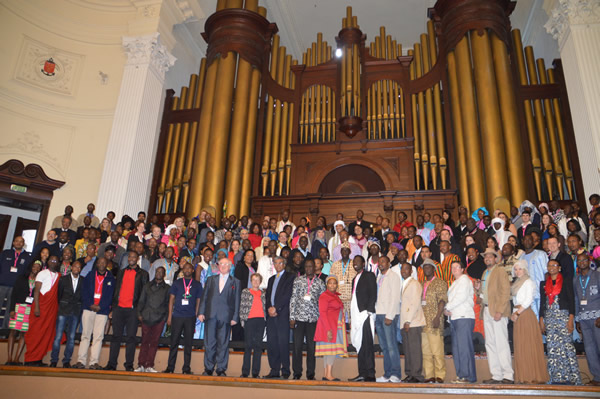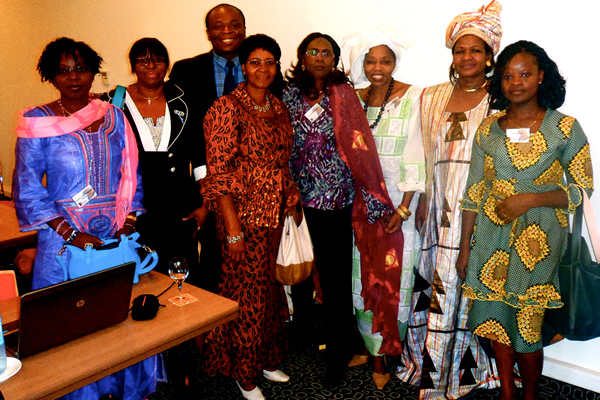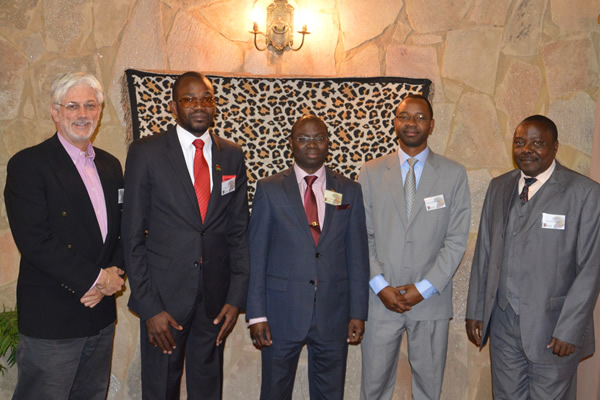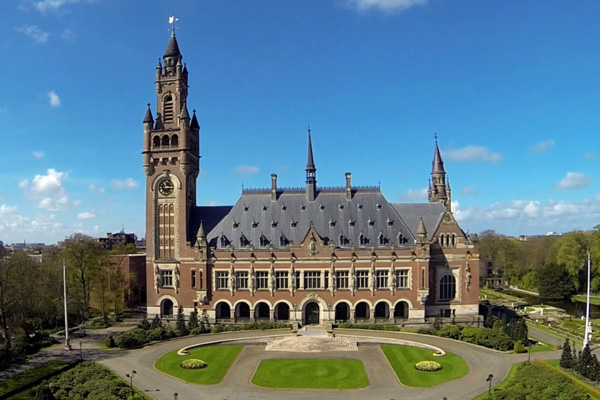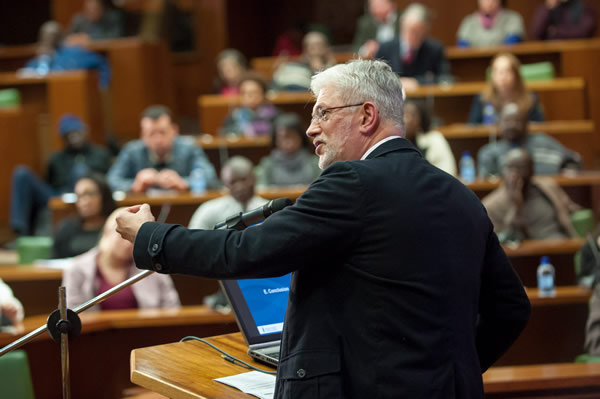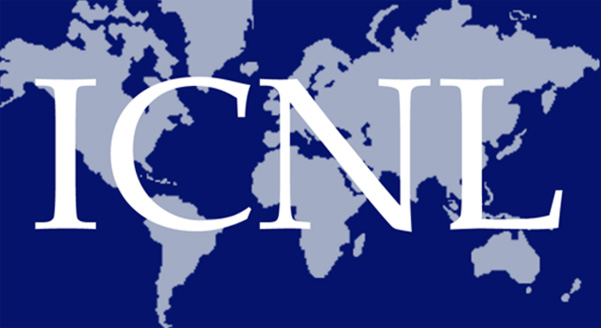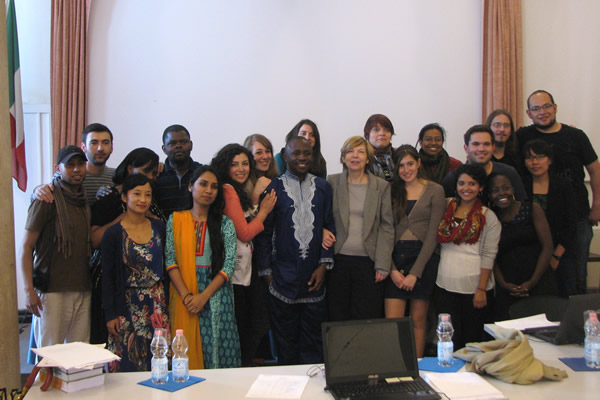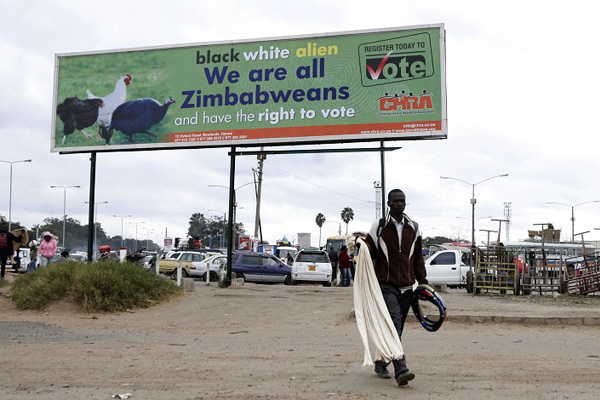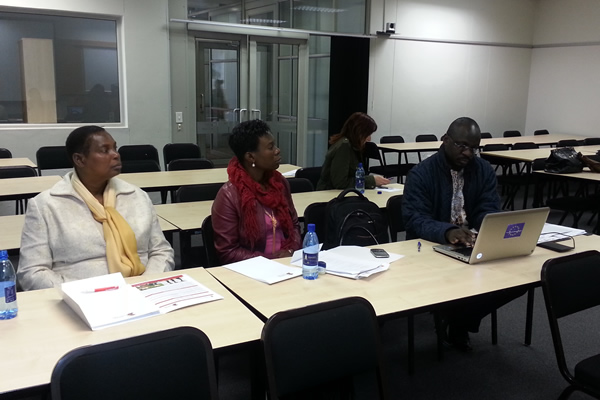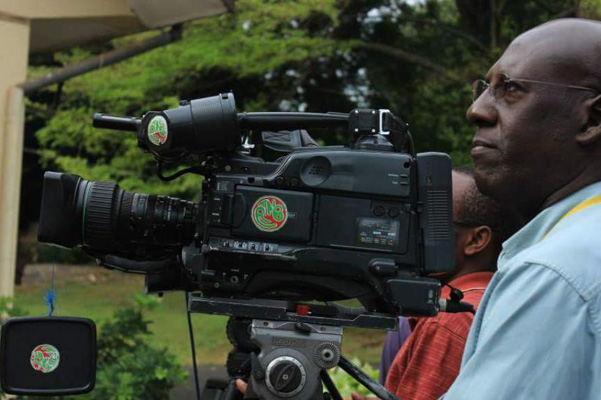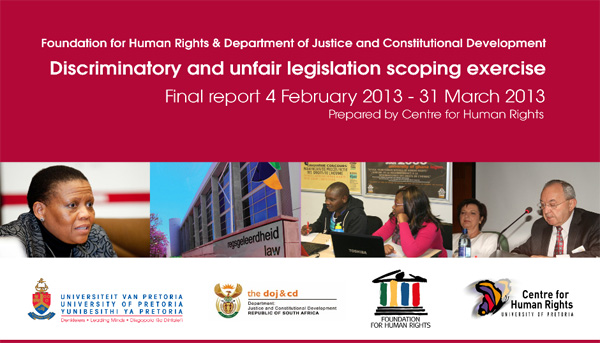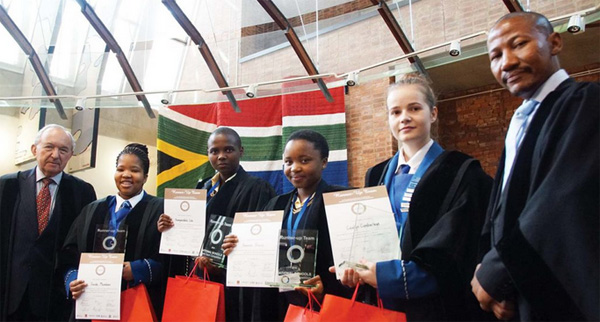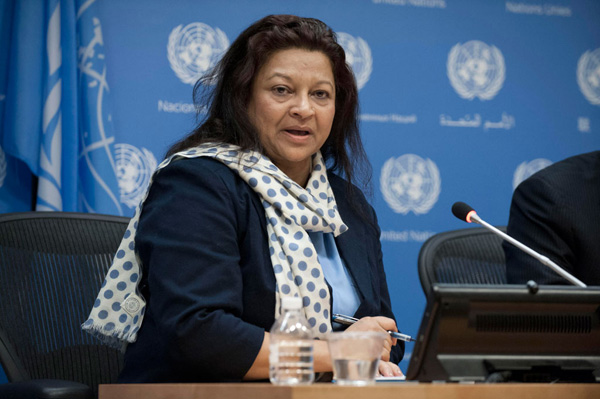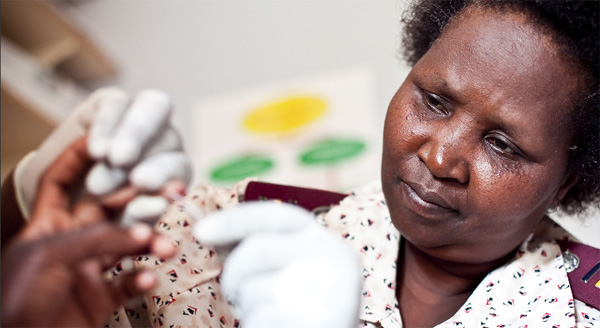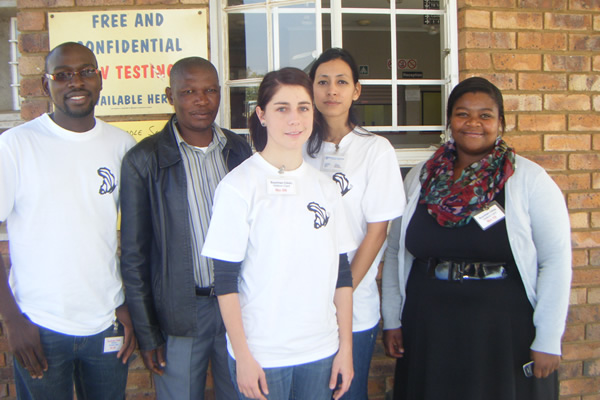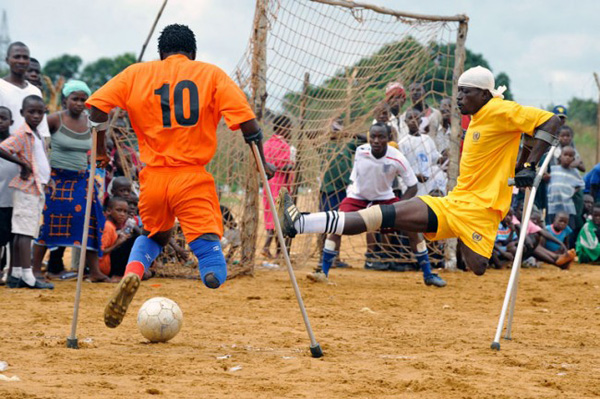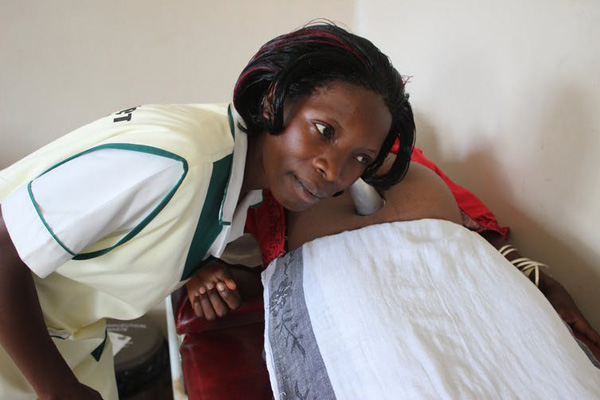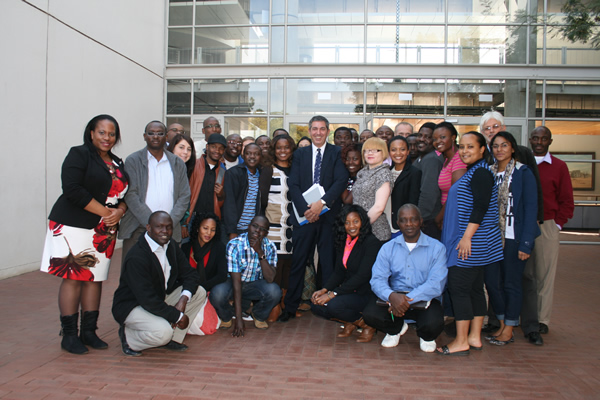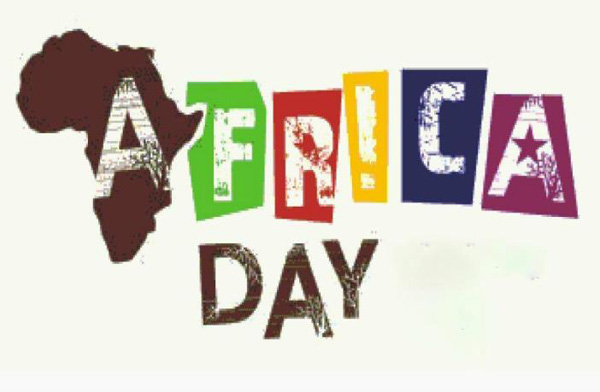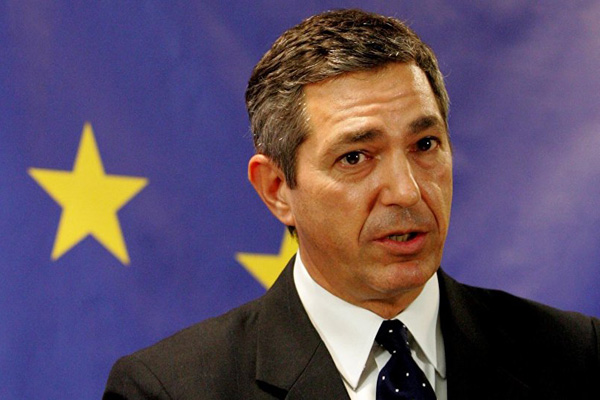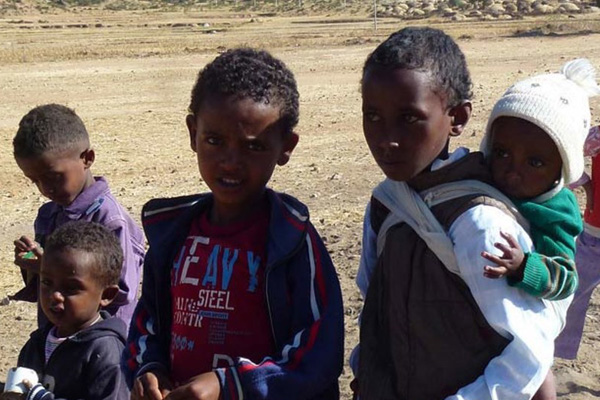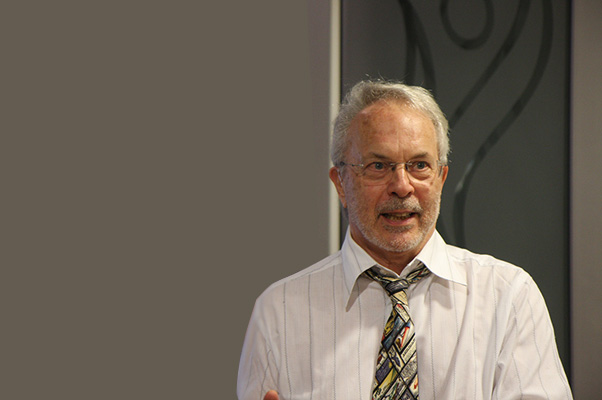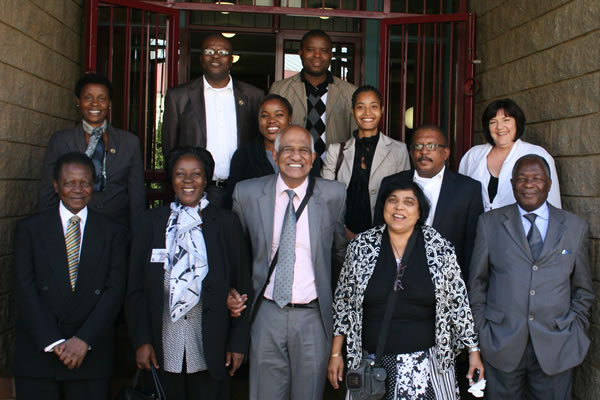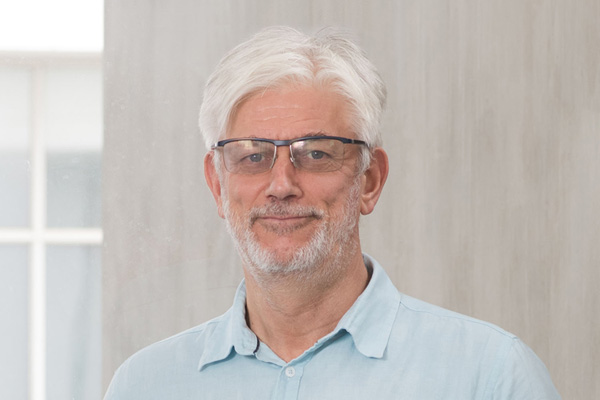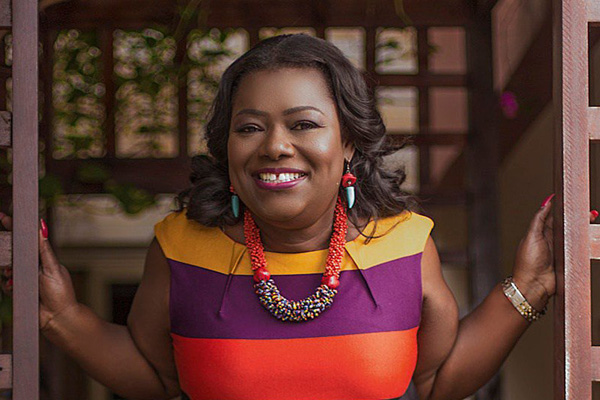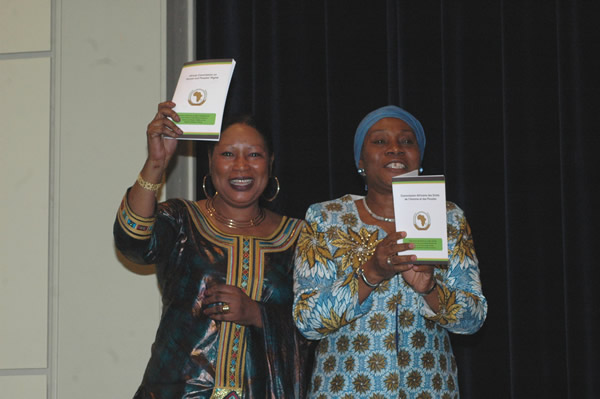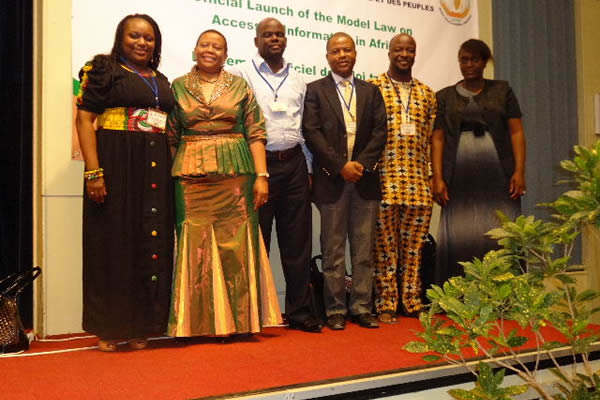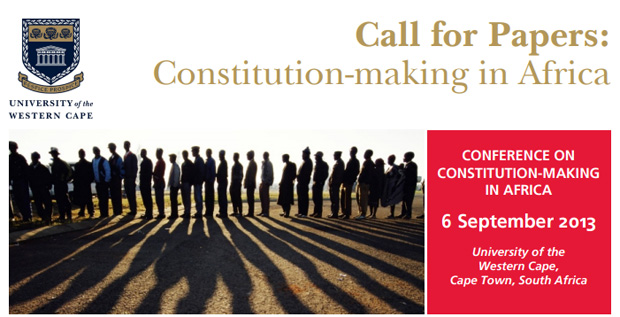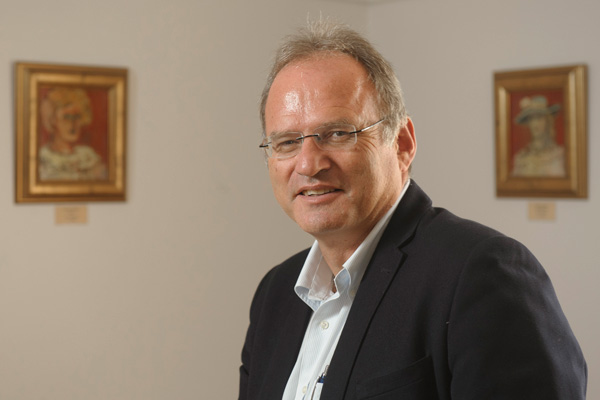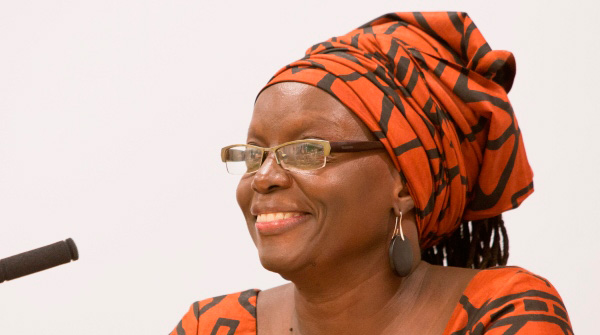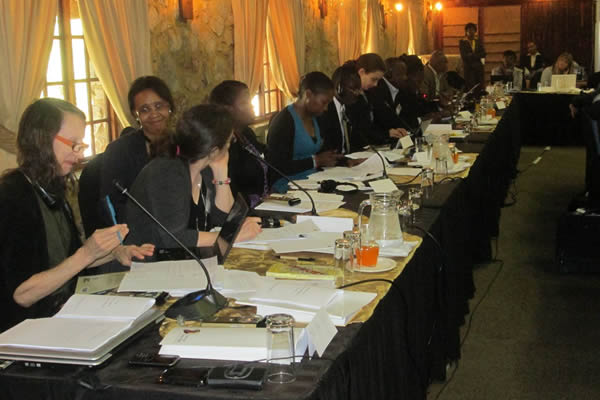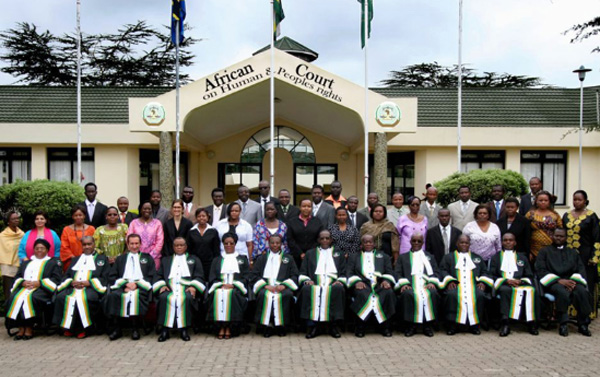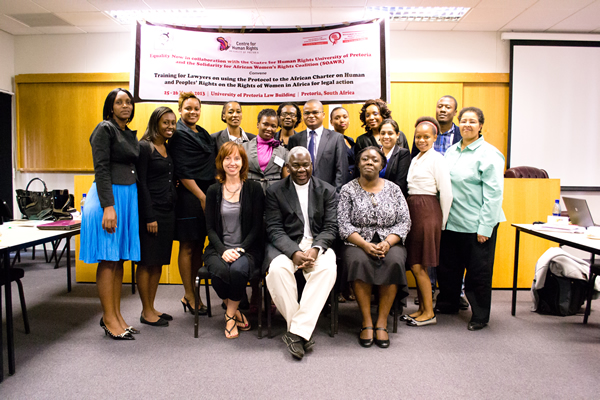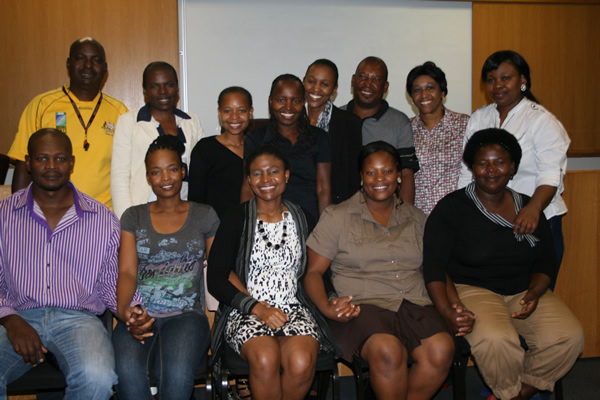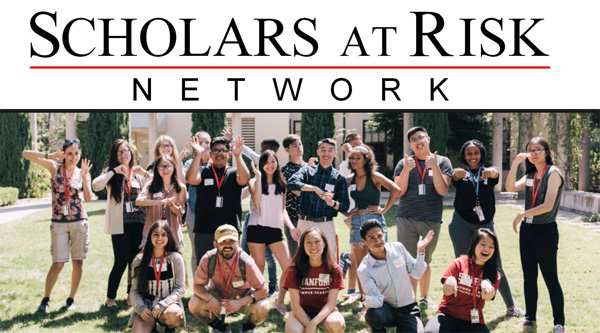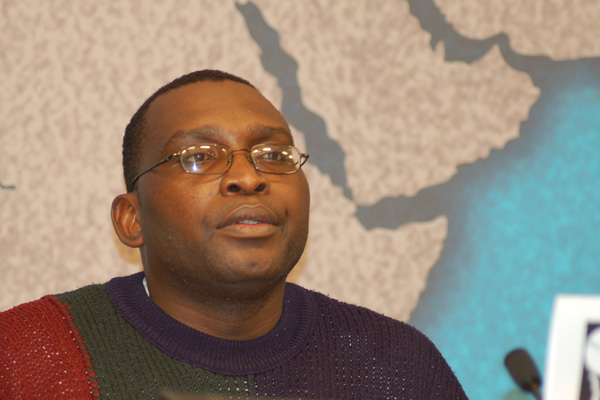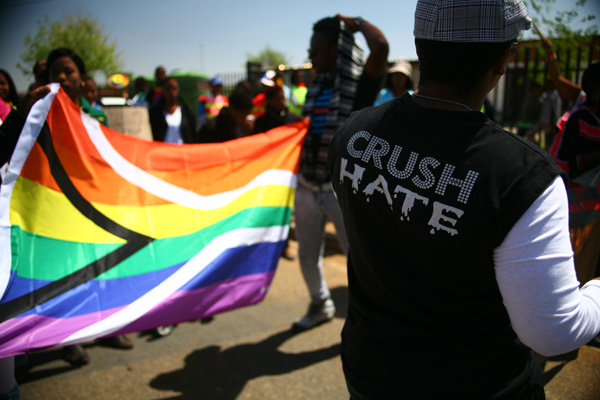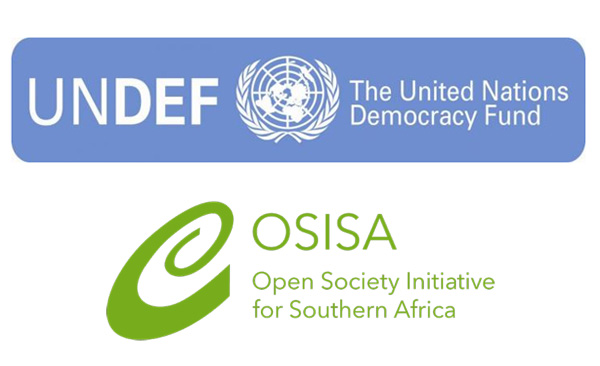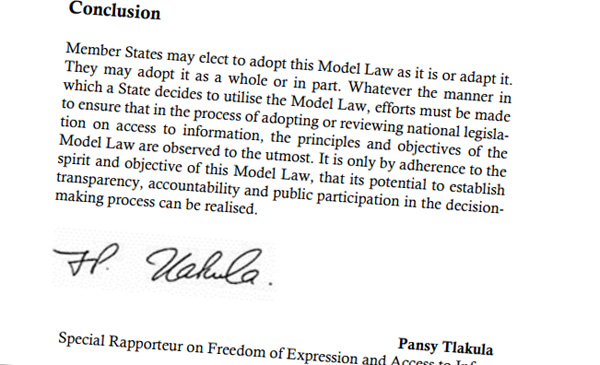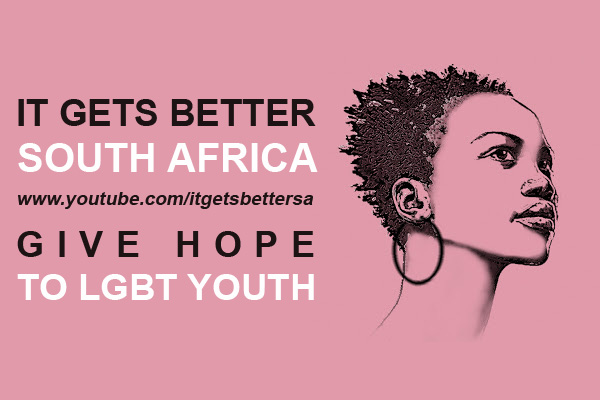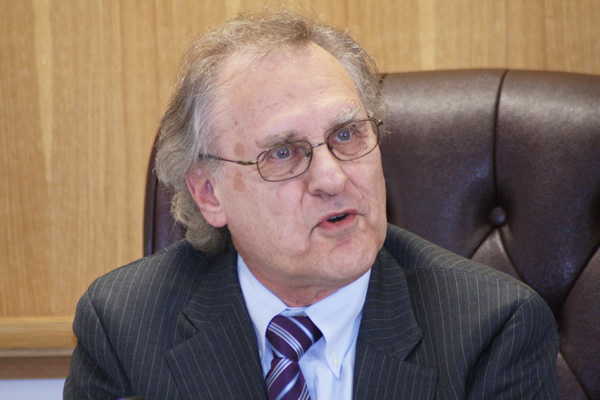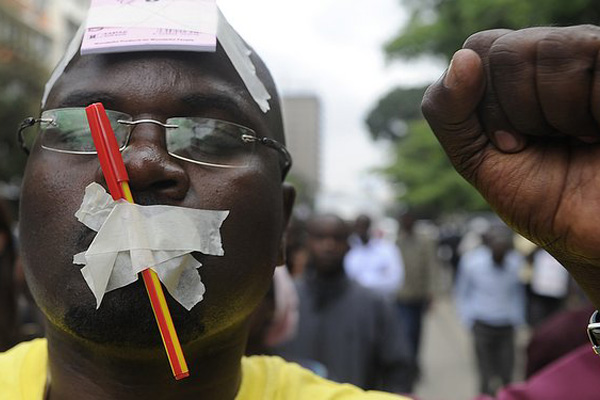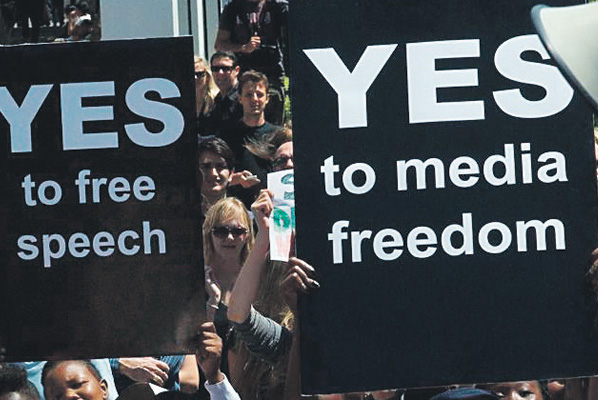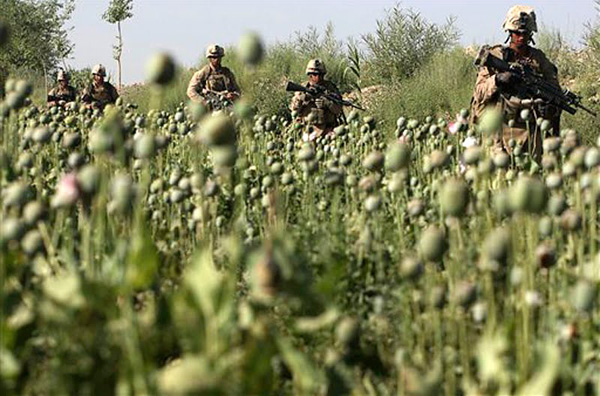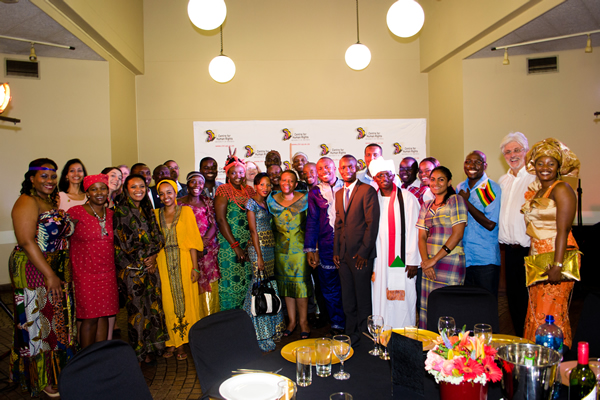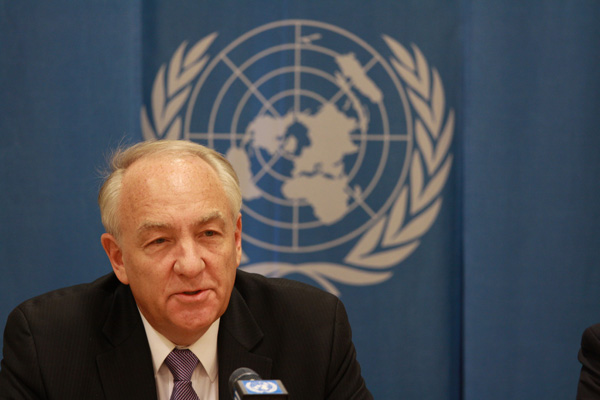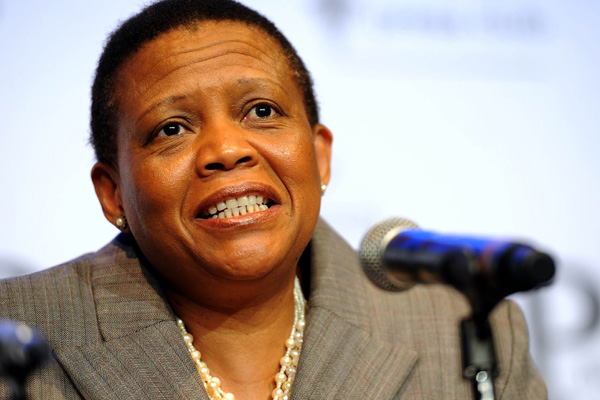- Details
Justice Johann van der Westhuizen, judge of the Constitutional Court and founding director of the Centre for Human Rights, University of Pretoria, on 10 December 2013, International Human Rights Day, received an honorary doctorate from the University of Pretoria.
Justice van der Westhuizen received the degrees BA Law cum laude in 1973, LLB cum laude in 1975 and LLD in 1980 from the University of Pretoria. His LLD thesis is entitled ‘Noodtoestand as regverdigingsgrond in die strafreg’ (‘Necessity as a ground of justification (or as a defence excluding unlawfulness) in the criminal law’). Justice van der Westhuizen has had an illustrious career as an academic, human rights practitioner and judge.
- Details
In the context of a conference on women’s reproductive health rights to commemorate the 10th anniversary of the adoption of the Protocol to the African Charter on Human and Peoples’ Rights on the Rights of Women in Africa (Women’s Rights Protocol) on 9 and 10 December, two prominent activists delivered inspiring words to conference participants and external guests. Dr Pregs Govender, Deputy Chairperson of the South African Human Rights Commission, delivered the keynote address that opened the conference, and Mr Stephen Lewis, Co-Director of AIDS-Free World, presented the 3rd annual Helen Kanzira Lecture. Both speakers invoked the ideals of the late Nelson Mandela and referenced the impact of his leadership and life.
- Details
The Centre for Human Rights at the University of Pretoria joins the world in mourning the death of Nelson Mandela. In the same breath, we raise our collective voice, with the millions of others who identify themselves as children of Nelson Mandela in one way or another, to celebrate his life and legacy.
Like so many others, the Centre for Human Rights encountered Nelson Mandela in many wonderful ways over the years:
For two years, from 1995 to 1996, our founding Director, and now Constitutional Court Judge, Johan van der Westhuizen worked closely with him as a member of the Independent Panel of Recognised Constitutional Experts advising the Constitutional Assembly on the drafting of South Africa's final Constitution; and member of the Technical Refinement Team responsible for the actual drafting of the text.
- Details
The Pretoria University Law Press (PULP) is pleased to announce the launch of the African Human Rights Law Journal as an open access online journal. All the volumes, published from 2001 up to 2013, are available ina searchable format.
This is the first issue of the African Human Rights Law Journal to appear as an on-line open-access publication. Looking back at the 12 years since its launch in 2001, we are confident that the Journal has played an important role in providing a forum for scholarship on human rights in Africa, focusing on the African regional human rights system.
- Details
The Centre for Human Rights, Faculty of Law at the University of Pretoria recently launched the first issue of the African Disability Rights Yearbook (ADRY) on 5 November 2013. Articles for consideration for publication in the 2014 issue of the ADRY are invited.
The ADRY comes in the wake of the adoption of Convention on the Rights of Persons with Disabilities in 2006. Its focus is on disability rights issues and developments of contemporary concern to persons with disabilities on the African continent It comprises three sections – Section A containing doctrinal articles and to which we are extending this invitation; Section B containing country-focused overviews of developments in disability rights in selected African countries; and Section C containing brief overviews of developments at the sub-regional and regional (African Union) levels.
- Details
The International Development Law Unit at the Centre for Human Rights, Faculty of Law, University of Pretoria cordially invites you to a seminar series titled “Trade & Investment Law Seminar Series (TILSS)”
This seminar is on the topic ‘African Growth and Opportunity Act: How far has the trade preferential regime helped African countries?’ with Dr Moses Obinyeluaku (ITAC) as the Guest Speaker.
- Details
The Centre for Human Rights at the Faculty of Law, University of Pretoria, invites you to the annual Helen Kanzira Lecture. This public lecture on ‘The Power of Advocacy’ will be presented by Mr Stephen Lewis, who will draw on his extensive international experience to illustrate the power of advocacy in the fight for social justice, reproductive rights, global health and gender equality. He is the co-founder and co-director of AIDS-Free World (www.aidsfreeworld.org), which is an international advocacy organisation that works to promote more urgent and more effective global responses to HIV/AIDS.
- Details
Worsening human rights situation in Sudan remains a source of regional concern. Attention was drawn to this saddening trend again when the Centre for Human Rights hosted a team of visitors from Sudan on 31 October 2013. Amira Osman Hamed who came in the midst of other human rights activists from the country stunningly related how she faces trial in Sudan for breaking article 152 of Sudanese Penal Code requiring all women to cover their heads. For daring to be different, Amira faces the possibility of being flogged upon conviction. Article 152 arbitrary prescribes 40 lashes for ‘any conduct or clothing in violation of public decency’. The nature of the trial does not allow her any chances of an appeal against the decision of the court once found guilty as charged. This generally raises concern about the deprivation of the dignity of Sudanese women and the gagging of the media in reporting on human rights situation which has been on the increase since morality laws took effect in Sudan following the coming into power of President Omar al Bashir.
- Details
On 4 and 6 November 2013 the first Southern African Disability Rights Moot Court Competition was held as part of a Centre-hosted conference on the rights of persons with disabilities in Africa. Five universities from Southern Africa were invited to participate in the moot including: Universidade Eduardo Mondlane (Mozambique), University of Zambia (Zambia), Midlands State University (Zimbabwe), University of Dodoma (Tanzania) and Chancellor College (Malawi).
- Details
Speaking on the first day of a two-day conference on the effective implementation of the UN Convention on the Rights of Persons with Disabilities (CRPD), Charlotte McClain-Nhlapo posed the question why this treaty has had so little traction in African countries.
McClain-Nhlapo, who previously served on the South African Human Rights Commission and now works with USAID, noted that despite wide ratification of the CRPD in Africa, persons with disabilities in Africa remain among the most socio-economically excluded and deprived persons.
- Details
The first issue of the African Disability Rights Yearbook (AYDR) was launched at the Centre for Human Rights (CHR), Faculty of Law, University of Pretoria, on 5 November 2013.
The Yearbook is edited by Prof Charles Ngwena, who served as convening editor (at CHR), with Dr Ilze Grobbelaar-Du Plessis (Department of Public Law, University of Pretoria), Prof Helene Combrinck (University of the Western Cape) and Dr Serges Kamga (UNISA) as co-editors. Although the Yearbook was initiated by the CHR, the realization of the first issue was only possible through the collaboration between the individuals and institutions mentioned. The 2013 Yearbook (covering the situation as at 31 December 2012) was launched as part of an Academic Conference on Disability Rights in Africa, held at the Centre on 5 and 6 November.
- Details
A Pan-African conference on the rights of people with disabilities and the launch of the African Disability Rights Yearbook and the final round of the first Southern African Disability Rights Moot Court Competition will be hosted by the Centre for Human Rights on 5 and 6 November 2013. The theme of the conference is ‘Overcoming obstacles: towards the effective implementation of the United Nations Convention on the Rights of Persons with Disabilities (CRPD) in Africa’. The conference will reflect on the relevance for Africa of the UN Convention on the Rights of Persons with Disabilities (CRPD), which the UN adopted in 2006.
- Details
The Centre, together with the Centre for Democracy and Human Rights Studies, based in Banjul, The Gambia, is developing draft guidelines for reporting by NGOs who enjoy observer status with the African Commission.
Please provide comments on this draft by 31 January 2014 to magnus.killander@up.ac.za / mkillander@gmail.com
- Details
The International Development Law Unit at the Centre for Human Rights, Faculty of Law, University of Pretoria cordially invites you to a seminar series titled “Trade & Investment Law Seminar Series (TILSS)”
This seminar is on the topic ‘Towards an Investment Regime for South Africa’ with Dr Mustaqeem de Gama (DTI) as the Guest Speaker.
- Details
The Centre for Human Rights at the Faculty of Law, University of Pretoria, invites you to an international conference to commemorate the tenth anniversary of the adoption of the Protocol to the African Charter on Human and Peoples’ Rights on the Rights of Women in Africa.
Papers on the theme ‘Exploring possibilities for women’s sexual and reproductive health rights’ will be presented by scholars, practitioners, and women’s rights activists from Africa and other regions.
- Details
The International Development Law Unit at the Centre for Human Rights, Faculty of Law, University of Pretoria cordially invites you to a seminar series titled “Trade & Investment Law Seminar Series (TILSS)”
This seminar is on the topic ‘American Signature Power Africa Initiative: What are the potential benefits to the beneficiary countries and the continent of Africa as a whole?’ with Jason Nagy (USTDA) as the Guest Speaker.
- Details
The International Development Law Unit at the Centre for Human Rights, Faculty of Law, University of Pretoria cordially invites you to a seminar series titled “Trade & Investment Law Seminar Series (TILSS)”
This seminar is on the topic ‘Inequities and imbalances in the rules-based multilateral trading system: The African experience’ with Prof Amos Saurombe (UNISA) as the Guest Speaker.
- Details
The Gender Unit with funding from the Irish Aid recently hosted the gender mainstreaming training from 16 - 20 September 2013 at the University of Pretoria. This training targets government officials, Irish Aid NGO partners and university staff and is designed to expose a key group of participants to the theory and practice of gender mainstreaming. This year’s participants ranged from representatives of the Philippines, Tanzania and Ethiopia. Also included were participants from various NGOs in Zimbabwe and South Africa as well as representatives from the Department of Women, Children and Persons with Disabilities and the University of Pretoria.
- Details
On 6 and 7 December 2012, at a conference convened by the Centre for Human Rights in collaboration with the Department of Political Sciences, University of Pretoria, a group of interdisciplinary academics, policymakers and practitioners in the areas of international peace and security with a special focus on Africa, considered and affirmed the Pretoria Principles on ending mass atrocities pursuant to Article 4(h) of the Constitutive Act of the African Union, set out below.
These Principles are intended to provide greater clarity and inform action by the African Union, sub-regional actors, governments and practitioners on how to enhance their respective roles in ending mass atrocities in Africa pursuant to Article 4(h), which provides for ‘the right of the Union to intervene in a Member State pursuant to a decision of the Assembly in respect of grave circumstances, namely: war crimes, genocide and crimes against humanity’.
- Details
The Centre for Human Rights at the Faculty of Law, University of Pretoria is hosting an academic conference on disability rights in Africa on the theme ‘Overcoming obstacles: towards the effective implementation of the United Nations Convention on the Rights of Persons with Disabilities (CRPD) in Africa'.
The Conference will be held at University of Pretoria, SRC Chambers on Tuesday, 5 and Wednesday 6 November 2013. The conference will coincide with the launch of first issue of the African Disability RightsYearbook on the evening of 5 November.
It is anticipated that papers presented at the 5 November conference would be subsequently re-worked for consideration for publication in the 2014 issue of the African Disability Rights Yearbook.
- Details
After a competing vigorously in the preliminary rounds, the 54 teams participating in the 22nd African Human Rights Moot Court Competition were cut down to the 6 teams competing in the final for the first prize.
This year, the following teams advanced to the final round of the Moot Competition: University of Stellenbosch (South Africa), Universidade Eduardo Mondlane (Mozambique) and Université Libre de Kinshasa (DRC) as Applicants and Moi University (Kenya), Catholic Universidade de Angola and Université des Lagunes CIDD (Côte d’Ivoire) as Respondents.
- Details
On 3 and 4 September 2013, the preliminary rounds of the 22nd African Human Rights Moot Court competition were held at the Great Hall, University of the Western Cape.
During these rounds, faculty representatives act as judges where participants have to battle a hypothetical human rights court case before the bench.
The competition is tri-lingual (English, French and Portuguese) and the best two teams from each language group are to appear in the final rounds. After two gruelling days in the courts, the following teams were chosen as finalists that will advance to the final rounds:
- Details
The twenty-second African Human Rights Moot Court competition, hosted by the University of the Western Cape marks not only the 22nd year that this competition has been running, but also the twentieth year since the creation and implementation of South Africa’s interim constitution. The competition aims to bring together human rights lawyers from every corner of the African continent and aspires to create awareness and informed individuals that will use their skills and knowledge to the betterment of the continent.
- Details
The Gender Unit organised a 3-day workshop from 21 - 23 August in Dakar on state reporting on the African Women's Rights Protocol in collaboration with the Special Rapporteur on the Rights of Women in Africa, Commissioner Soyata Maiga. The objectives of the workshop were to popularise the guidelines on state reporting under the Protocol and to strengthen understanding of state reporting obligations in accordance with the Guidelines.
- Details
From 20 to 21 August 2013, the Special Rapporteur on Freedom of Expression and Access to Information in Africa, Commissioner Pansy Tlakula, in collaboration with the Centre for Human Rights and the Media Institute for Southern Africa (MISA) Regional Secretariat, held a stakeholders meeting on decriminalisation of laws limiting freedom of expression and on the safety of journalists for southern Africa, in Pretoria, South Africa.
This meeting brought together government officials, national human rights institutions, national journalist associations as well as civil society organisations from 11 southern African countries (Angola, Botswana, Lesotho, Malawi, Mauritius, Mozambique, Seychelles, South Africa, Swaziland, Zambia, Zimbabwe, to discuss issues related to the decriminalisation of laws which criminalise freedom of expression and the safety of journalists and the issue of impunity in southern Africa.
- Details
The International Court of Justice and the International Criminal Court on the occasion of the 100th Anniversary of the Peace Palace in The Hague
The Embassy of the Kingdom of the Netherlands in cooperation with the Institute for International and Comparative Law in Africa in the Faculty of Law, University of Pretoria kindly invites you to an exclusive lecture by Professor John Dugard, Judge ad hoc at the International Court of Justice and a respondent address by Honourable Ebrahim Ebrahim MP, Deputy Minister of International Relations and Cooperation followed by a moderated discussion.
- Details
Prof Frans Viljoen, the Director of the Centre for Human Rights, delivered the 11th University of Pretoria Expert Lecture on 12 June 2013.
The theme of Prof Viljoen's public lecture was 'Equal rights in a time of homophobia: An argument for equal legal protection of ‘sexual minorities’ in Africa.
- Details
The International Center for Not-for-Profit Law (ICNL) in conjunction with the Centre for Human Rights (CHR) hosted a workshop on freedom of association and civil society laws in Africa from 11 to 12 July 2013. The workshop was aimed at academia, civil society and practitioners in particular.
Representatives from all over Africa attended the event, which included presentations by experts in the field of civil society laws and its implications.
- Details
During the 2013 edition of the Global Classroom, students and professors came together to strengthen and deepen the integration of the Master’s Programmes and Diplomas in Human Rights and Democratisation sponsored by the European Union under the aegis of the Global Campus (GC).
The discussions were enriched with the participation of special lecturers including Mr. Olivier De Schutter, the UN Special Rapporteur on Food, and Mr. Christian Strohal from the Austrian Ministry of Foreign Affairs.
- Details
Prof Michelo Hansungule, Professor of human rights law at the Centre for Human Rights, University of Pretoria has been tasked to head an Election Observer Mission to Zimbabwe during the end of July. The Mission will be dispatched by the Southern Africa Development Community-Lawyers’ Association (SADC-LA), currently running a programme on Governance and Democracy in the SADC region.
The objective of the programme is to contribute towards democratic electoral processes in the SADC region. The organisation has been accredited by the Zimbabwe Elections Commission on the 1st of July 2013 and will deploy 25 lawyers to observer the harmonised elections to be held on the 31st of July 2013.
- Details
The Gender Unit organised a 3-day workshop on state reporting under the African Women's Rights Protocol (Protocol) from 10 - 12 June at the University of Pretoria. Government and civil society representatives from South Africa, Kenya, Mozambique, Malawi, Lesotho, and Zambia were invited. These countries were specifically targeted for one of two reasons: they are in the final stages of drafting their state reports before submitting it to the African Commission on Human and Peoples' Rights (Commission); or they were one of the first countries to have ratified the Protocol but have yet to submit a report on measures they have taken to comply with the treaty.
- Details
On 24 and 25 June 2013, the Special Rapporteur on Freedom of Expression and Access to Information in Africa, Commissioner Pansy Tlakula, in collaboration with the Centre for Human Rights, Article 19 Eastern Africa and the Burundi Union of Journalists, organised a stakeholders meeting on the ‘Decriminalisation of Laws Limiting Freedom of Expression and the Safety of Journalists in Eastern Africa’, in Bujumbura, Burundi.
The meeting brought together governmental officials, national human rights institutions, national journalist associations, as well as civil society organisations, to discuss issues related to the decriminalisation of freedom of expression and the safety of journalists in Eastern Africa.
- Details
The Centre for Human Rights, University of Pretoria Law Faculty, has been commissioned and funded by the Foundation for Human Rights (FHR) and the Department of Justice and Constitutional Development to undertake a scoping exercise as part of their Access to Justice and Promotion of Constitutional Rights Programme.
The aim of the project was to map out and support research around discriminatory and unfair legislation that impact on marginalized and vulnerable groups, with a view to identify studies undertaken in the field, pinpoint gaps for further research and ensure that any interventions proposed by the Foundation for Human Rights do not amount to duplication.
- Details
You are cordially invited to attend the National Oral Rounds of the Third National Schools Moot Court Competition, to be presented from 9–11 August 2013. The Moot is presented by the Universities of Venda, Western Cape, and Pretoria; as well as by CLASI and the SA Human Rights Commission, in partnership with the Department of Justice and Constitutional Development, the Department of Basic Education and the Foundation for Human Rights.
The presiding judges in the final round in Johannesburg will be eminent jurists and judges from South Africa.
Please find the problem to be argued, as well as more details on the moot, at www.up.ac.za/law.
- Details
The United Nations Special Rapporteur on Eritrea, Sheila B. Keetharuth, today reiterated her call on the international community to keep monitoring the human rights situation in Eritrea and to protect and support those fleeing the country, in particular the increasing numbers of unaccompanied children.
“I urge the international community to keep Eritrea under close scrutiny until meaningful change is evident,” Ms. Keetharuth said during the presentation of her first report to the UN Human Rights Council. “It will be important to increase efforts to constructively engage with Eritrea and neighbouring countries to improve the situation of human rights in the country.”
- Details
The Women’s Protocol is a complementary legal document to the African Charter on Human and Peoples’ Rights which was adopted by the African Commission in 2003 and entered into force in 2005. Its main aim is to expand the substantive protection of women’s rights in Africa by enumerating the rights of women and the corresponding obligations of state parties.
The General Comments was adopted in order to clarify the specific measures that states should take in order to fulfill their obligations under Article 14(1)(d) which provides for the right to self-protection and to be protected against sexually transmitted infections including HIV/AIDS and Article 14(1)(e) which provides for the right to be informed on one’s health status and on the health status of one’s partner.
- Details
The Centre for Human Rights, Faculty of Law, University of Pretoria, expresses its concern over the most recent upsurge in xenophobic violence across South Africa. This comes in the wake of reports on the attacks on, and killings of, Somalian nationals in Diepsloot, Gauteng, and outside Port Elizabeth in the Eastern Cape.
One area of concern about the xenophobic epidemic in South Africa is the media coverage. Video footage of some of the attacks has been circulating on the internet, with insufficient coverage in the local media. It is disconcerting that xenophobic attacks are not investigated in depth by the main media houses in South Africa. It is imperative that the media explore the cause of xenophobia at grass root level, identify the issues, and influence popular perception.
- Details
The Centre for the Study of AIDS (CSA) in collaboration with the University of Pretoria runs a para-legal advice bureau for people living with HIV/AIDS in Hammanskraal. The bureau is called The Place and it offers HIV related information along with structural assistance to Thulani Mvula, a community-based HIV activist and support group coordinator.
Thulani’s vision is to empower people living with HIV to live full and healthy lives and not to internalise the discrimination that they face on a daily basis. He says that the people he works with are not aware of their rights and thus cannot defend themselves against unfair treatment. The Place also expressed the view that the HIV positive community is not aware of the legal and other services available to them.
- Details
The LLM/MPhil in Human Rights and Democratisation in Africa is a unique programme to which 30 individuals from African countries are admitted. The programme is presented by the Centre for Human Rights at the Faculty of Law, University of Pretoria.
In the spirit of mutual exchange aimed at strengthening the links between the regional human rights master’s programmes, and following the positive experience of the EMA programme in this area, the African Human Rights Master’s Degree introduced an amateur photography competition on human rights and democratisation in 2009.
- Details
Academic Conference on Disability Rights in Africa on the theme ‘Overcoming obstacles: Towards the effective implementation of the CRPD in Africa’
The Centre for Human Rights invites abstracts for a conference on disability rights with a focus on the implementation of the Convention on the Rights of Persons with Disabilities (CRPD) in the African region. The conference will be held at the Centre for Human Rights on Tuesday, 5 November 2013 in Pretoria, South Africa. The conference will also coincide with the launch of first issue of the African Yearbook on Disability Rights on the evening of 5 November
It is anticipated that papers presented at the 5 November conference would be subsequently re-worked for consideration for publication in the 2014 issue of the African Yearbook on Disability Rights.
- Details
Commemorating the tenth anniversary of the adoption of the Protocol to the African Charter on Human and Peoples’ Rights on the Rights of Women in Africa: Exploring possibilities for promoting women’s sexual and reproductive rights
The Protocol to the African Charter on Human and Peoples’ Rights on the Rights of Women in Africa (also called the ‘Maputo Protocol’) was adopted in 2003 and entered into force in 2005. It has now been ratified by two-thirds of AU member states.
One of the most important provisions of the Protocol is article 14, dealing with the health and reproductive rights of women. Article 14 has been hailed for advancing women’s rights beyond existing international standards, by providing for the right to medical abortion under certain circumstances, and the recognition of the intersection of women’s human rights and HIV. Article 10(3) of the Protocol is also innovative. It places an obligation upon states to reduce military spending in favour of social development and the promotion of women, in particular. This provision has the potential to significantly advance women’s health and reproductive rights.
- Details
In a presentation at the Centre for Human Rights, the European Union (EU) Special Representative for Human Rights, Stavros Lambrinidis, who is in South Africa for the first EU/SA human rights dialgoue, highlighted key issues in the EU's foreign policy.
Mr Lambrinidis highlighted that the EU recently took the step to make human rights the cornerstone of its foreign policy. This focus on human rights also led to the creation of the office of the EU Special Representative for Human Rights.
- Details
Author: Prof Frans Viljoen
Director, Centre for Human Rights, Faculty of Law, University of Pretoria
This opinion piece appeared in the following newspapers:
![]() The Star, 24 May 2013
The Star, 24 May 2013
![]() Pretoria News, 24 May 2013
Pretoria News, 24 May 2013
The celebration of Africa Day this year marks 50 years since the elusive quest for African unity formally started on 25 May 1963, the day on which the Organisation of African Unity (OAU) was inaugurated. Despite the acceleration of integration that came with the transformation of the OAU into the African Union (AU), the AU remains poised between two contradictory imperatives: the strengthening of continental institutions and reinforcing national sovereignty.
- Details
The Centre for Human Rights and the European Union Delegation to South Africa cordially invites you to a presentation on EU perspectives on human rights and foreign policy by Stavros Lambrinidis, European Union Special Representative for Human Rights.
Date: Tuesday 28 May 2013
Time: 10:30 - 12:00
Venue: Centre for Human Rights Lecture Hall, Law Building, University of Pretoria
- Details
The United Nations Special Rapporteur on the human rights situation in Eritrea, Sheila B. Keetharuth, today called on the international community to keep Eritrea under close scrutiny until meaningful change is evident in the country.
“Blatant disrespect for human rights in Eritrea is unacceptable,” Ms. Keetharuth stressed after a ten-day mission to Ethiopia and Djibouti to collect first-hand information directly from Eritrean refugees on the human rights situation in their country. “Real change would require a fundamental reform process transforming the current culture of rights denial with one anchored in the rule of law, respect for and realization of all human rights and human dignity.”
- Details
‘The rule of law at home and abroad: Reflections (not only) on South(ern) Africa’
This Faculty Seminar Series (Faculty of Humanities) will be presented by Prof Henning Melber, Extraordinary professor at the Department of Political Sciences and Director Emeritus/Senior Adviser of the Dag Hammarskjöld Foundation in Uppsala
The discussant at the Faculty Seminar Series is Prof Michelo Hansungule (Centre for Human Rights, UP)
- Details
Row 1 left to right: Justice Remmy Kasule (Uganda), Judge Regina Mtembei Rweyemamu (Tanzania), Judge Zak Yacoob and the wife, Justice Abdallah Salum Massati (Tanzania)
Row 2 left to right: Lady Justice Percy Night Tuhaise (Uganda), Justice Elisa Samuel (Mozambique), Justice Anneth Grispos(Mozambique), Judge Musi Cagney(South Africa), Judge Sulet Potterill (South Africa)
Row 3 left to right: Court President Phetsolo Nare (Botswana), Magistrate Joseph Chigona (Malawi)
- Details
'HUMAN RIGHTS IN A TIME OF HOMOPHOBIA: AN ARGUMENT FOR EQUAL LEGAL PROTECTION OF "SEXUAL MINORITIES" IN AFRICA'
Over the last decade or so, international acceptance of 'sexual minorities' has increased significantly, reflected in the consensus that a person's sexual orientation or gender identity should not be a basis for denying him or her the equal protection of the law. In most of the African continent, a conflicting trend of formally stigmatising homosexuality has manifested itself, leading to the following three questions:
- To what extent is this trend at odds with the formal legal protection under African regional human rights treaties and the constitutions of most African states?
- To what extent is institutionalising African homophobia justified by the arguments that equal legal protection of 'sexual minorities' is a neocolonial attempt at subverting 'African values', that it is in conflict with deeply-held religious beliefs and African culture, and that it flies in the face of the majority's views in African societies?
- What legal and extra-legal strategies should be used to advance the rights of sexual minorities and curb homophobia on the continent?
- Details
Nana Oye Lithur, an alumna of the Centre for Human Rights, was recently appointed as the Cabinet Minister for Gender, Children and Social Protection in Ghana. In 2001, Nana graduated from the LLM in Human Rights and Democratisation in Africa.
In 2007, she received the prestigious Vera Chirwa Award for her human rights advocacy on the continent. Instituted in 2006, on the occasion of the Centre being awarded the UNESCO Prize for Human Rights Education, the Vera Chirwa Human Rights Award is named after Vera Chirwa, a lawyer and human rights activist who fought for independence, multi-party democracy and was saved in extremis from execution in Malawi.
- Details
On 12 April 2013, the African Commission on Human and Peoples' Rights officially launched the General Comments to article 14(1)(d) and (e) of the Protocol to the African Charter on Human and Peoples' Rights at the Commission's 53rd Session in Banjul, The Gambia.
Under the guidance of the Special Rapporteur on the Rights of Women in Africa, and in collaboration with the Centre for Human Rights and regional experts, the General Comments were drafted, and adopted, to provide specific guidance about the obligations of states under these provisions. They further aim to support the Special Rapporteur in the promotion and implementation of the Women’s Rights Protocol; to equip civil society organisations with a yardstick for advocacy and state accountability; and to guide the future jurisprudence of the Commission.
- Details
For millions of Africans on the continent the event passed unnoticed, but the adoption by the African Commission on Human and Peoples’ Rights (African Commission) of a model law to inspire and guide African legislatures towards enacting access to information legislation may well usher in an era of greater openness on our continent. When the African Commission officially launched the ‘Model Law on Access to Information for Africa’ on 12 April 2013 during its 53rd Ordinary Session currently being held in Banjul, The Gambia, it for the first time adopted a model law on any topic.Several expert meetings were held, the first of which resulted in the establishment of a ten-member working group of access to information (ATI) experts tasked with developing an initial draft of the Model Law. This first draft was subsequently presented to the African Commission at its 49th Ordinary Session held in Banjul, The Gambia in April 2011.
- Details
The Multi-Level Government Initiative and the Socio-Economic Rights Project of the Community Law Centre (University of the Western Cape), together with the South African Research Chair on Multi-Level Government, Law & Policy are pleased to announce a conference on “Constitution-making in Africa”.
The Conference is organised as part of the African Human Rights Moot Court Competition, hosted by the Faculty of Law (University of the Western Cape) and the Centre for Human Rights (University of Pretoria) from 2 to 7 September 2013.
Please note:
The email address to use when sending abstract is: dlgordon@uwc.ac.za
- Details
The Institute for International and Comparative Law in Africa at the Faculty of Law, University of Pretoria cordially invites you to a lecture and discussion on ‘Lethal autonomous robotics: Coming to a theatre near you?’ by Christof Heyns, United Nations Special Rapporteur on extrajudicial, summary or arbitrary executions and Professor of Human Rights Law, UP.
- Details
This is an invitation to attend what should be a fascinating and invigorating discussion with a leading thinker on sexualities and rights in Africa. It forms part of an ongoing series of seminars on sexuality and gender, hosted by the Institute for Women’s and Gender Studies, the Centre for the Study of AIDS, the Centre for Human Rights, the Department of Anthropology and Archaeology and the Department of Philosophy Departments here at the University of Pretoria.
- Details
The Centre for Human Rights, University of Pretoria and the Open Society Justice Initiative held the final expert meeting to finalise the Draft Global Principles on National Security and the Right to Information from 5 to 6 April 2013, in Pretoria, South Africa.
The meeting brought together over 60 individuals, most of whom had previously participated in consultations held in Europe, Asia, North America and three sub-regions in Africa, in the last two years. Participants included senior security sector officials, academics, civil society and access to information experts-including three Special Rapporteurs on Freedom of Expression from the African Commission on Human and Peoples’ Rights, the Organisation of American States and the United Nations.
- Details
The African Court Coalition organized a one hour discussion as a side event during the 53rd Ordinary Session of the African Commission on Human and Peoples’ Rights (the Commission) with the theme; ‘Reflecting on the Current Developments at the African Court for Better Access to Justice in the Continent’. The event was held at the Kairaba Beach Hotel on the 11 April 2013, in Banjul, The Gambia with about 70 participants attending.
During an interactive one hour discussion, human rights experts and judge from the Court reflected on a number of issues relating to the Court which included among others; handling of cases transferred by the Commission and the outcome of a request for an Advisory Opinion before the Court for a case similar to the one pending before the Commission.
- Details
Equality Now, Solidarity for African’s Women's Rights and the Centre for Human Rights recently collaborated to host a training for lawyers on using the Protocol to the African Charter on Human and Peoples’ Rights on the Rights of Women in Africa for legal action on 25 and 26 March 2013. The participants from this program were selected from partner organizations across Southern Africa including private law firms and human rights institutes. They ranged in expertise from litigation specialists to legal advisers in both the public and private sector.
It was an intensive two day session packed with varied and informative presentations including from the Southern African Litigation Centre, successes and challenges noted in strategic litigation of certain cases; as well as a presentation by Professor Frans Viljoen on using the Protocol to advance women's rights and the existing regional mechanisms-The African Commission, African Court and Regional Economic Communities.
- Details
The Gender Unit in collaboration with Irish Aid recently hosted a report back session on Gender Mainstreaming; a follow up session to training offered to Irish Aid partners and some University of Pretoria staff on 17 - 21 September 2012 at the University of Pretoria. An important element of the Gender Mainstreaming session held last year was the development of projects which were to be implemented at the different organisations represented at the training session. This was done under the mentorship of Elize Delport and Karen Stefiszyn of the Gender Unit who took time to develop projects specific to the participants’ interest and also relevant within their organisations. The session on 14 and 15 March 2013 was designed to report back on the interventions carried out, as well as the highlights and challenges noted during the implementation of their projects.
- Details
The Scholars At Risk (SAR)’s Academic Freedom Monitoring Workshop was hosted by the Centre for Human Rights from 2-6 April 2013 and was attended by SAR staff, SAR’s monitoring partners and staff of the Centre. Participants were welcomed by the Dean of Faculty of Law, Prof André Boraine and the Director of the Centre for Human Rights, Prof Frans Viljoen.
The aim of the Academic Freedom Monitoring Workshop is to improve SAR’s monitoring and information distribution system which creates awareness of conducts which constitute violation of academic freedom and human rights of members of the academic institution.
- Details
The Scholars at Risk (SAR) has recently launched a global monitoring system to identify, track, and analyse attacks on academic freedom and university values. Using the information gathered through the monitoring system, SAR aims to build awareness and develop targeted advocacy responses to key attacks, ultimately enhancing protection for academic freedom and improving condition for higher education communities worldwide.
From 3 to 5 April, Scholars at Risk, with the support from the Centre for Human Rights, University of Pretoria will convene its global team of monitors to evaluate the monitoring system’s progress to date, and build on the advancement already made.
- Details
The Gambia, 22 March 2013 -The African Commission on Human and Peoples’ Rights has found the Zimbabwe Government responsible for the torture and ill-treatment of Gabriel Shumba, a well-known human rights advocate and lawyer from Zimbabwe. This is the first time in its 26-year history for the most important human rights body in Africa to hold Zimbabwe responsible for torture.
Mr Shumba, who was representing human rights activists and members of the opposition party MDC before courts in Zimbabwe at the time of his arrest and torture at the hands of the police and intelligence personnel, emphasised that the ruling went beyond his case.
- Details
The quest to challenge the negative attitudes in society and unwind repressive state machinery towards sexual minorities in Africa has been embraced by many individuals and organisations across Africa and in other parts of the world. This was evidenced by the selection of participants who attended the annual short course on sexual minorities, presented by the Centre for Human Rights at the University of Pretoria from 11 to 15 February 2013. In total 39 participants from 26 African countries attended. Five others from Finland, Belgium, Britain and the USA also attended. Participants were drawn from both the public sector (including diplomatic missions) and civil society.
- Details
The Centre for Human Rights (CHR), University of Pretoria, in collaboration with the Special Rapporteur on Freedom of Expression and Access to Information in Africa, Commissioner Pansy Tlakula, has commenced a two-year project entitled ‘Strengthening Legal Frameworks on Access to Information in Africa’. The project is for a period of two years (from 1 March 2013 to 28 February 2015)) and is being funded by the United Nations Democracy Fund (UNDEF), with additional funding from the Open Society Initiative of Southern Africa (OSISA).
- Details
The African Commission on Human and Peoples’ Rights (African Commission) adopted the ‘Model Law on Access to Information for Africa’ during its recently concluded Extra-Ordinary Session in Banjul, The Gambia. The adoption of the Model Law is a milestone for the African Commission, as it - for the first time - provides a practical tool to assist States in complying with the obligation under article 1 of the African Charter on Human and Peoples’ Rights to ‘adopt legislative, or other measures to give effect’ to the ‘rights, duties and freedoms enshrined’ therein.
- Details
Six recent graduates of the LLM (Human Rights & Democratisation in Africa) programme participated in the It Gets Better South Africa campaign. It Gets Better South Africa forms part of the global It Gets Better Project where online videos are used to share unique messages of hope and solidarity with LGBT youth. Since its first video, the It Gets Better Project has inspired more than 50 000 user-created videos that have been viewed more than 50 million times.
It Gets Better South Africa features struggle hero Ahmed Kathrada, FreshlyGround violinist Kyla-Rose Smith, presenters Jo-Ann Strauss and Sade Giliberti, models Kerry McGregor and Shashi Naidoo and Mr Gay World 2011, Francois Nel.
- Details
It was a gentle clash of ideas at the Faculty of Law, University of Pretoria, when two distinctive personalities, Mr Stephen Lewis, the Co-Director of AIDS-Free World, and Mr Mandiaye Niang, the Regional Representative for the United Nations Office on Drugs and Crime (UNODC) in Southern Africa presented brilliant arguments for and against an interesting theme: Is strict control of drugs essential to the realisation of the right to health before a diversified audience drawn from different states of Africa. Moderated by Ms Mary Crewe, the Director of the Centre for the Study of AIDS, the highly informative event was organised jointly by the International Centre on Human Rights and Drug Policy, the University of Essex and the Centre for Human Rights at the University of Pretoria.
- Details
On 6 February 2013, the Special Rapporteur on Freedom of Expression and Access to Information in Africa, Commissioner Pansy Tlakula, in collaboration with Media Institute of South Africa Malawi (MISA-Malawi), World Association of Newspapers and News Publishers (WAN-IFRA) and the Centre for Human Rights, organised a stakeholders meeting on the decriminalisation of laws limiting Freedom of Expression, in Lilongwe, Malawi.
The meeting brought together organisations that had worked on the decriminalisation of laws limiting freedom of expression in Malawi in the past, those that are well positioned to do so in the future, as well as representatives of media groupings whose activities are most jeopardised by the existence of these laws.
- Details
The Draft Model Law on Access to Information has been updated in readiness for re-consideration by the African Commission on Human and Peoples’ Rights (ACHPR) at its Extra-Ordinary Session taking place from 18 to 23 February 2013 in Banjul, the Gambia. The Model Law was initially presented to the ACHPR during its 52nd Ordinary Session last October in Yamoussoukro, Ivory Coast. At the presentation, the Working Group received useful comments from Commissioners which formed the basis for the finalisation of the Draft Model Law.
The current draft has since been forwarded to the ACHPR ahead of its up-coming consideration.
- Details
You are cordially invited to attend a debate on drug control and the right to health, organised jointly by the International Centre on Human Rights and Drug Policy, the University of Essex and the Centre for Human Rights at the University of Pretoria.
Date & Time:
Thursday 21st February 2013 at 14:00
Venue:
Moot Court Room (Ground Floor), Faculty of Law, Main Campus, University of Pretoria
- Details
Advocate Pansy Tlakula, the Chairperson of the South African Independent Electoral Commission (IEC), who is also the African Commission’s Special Rapporteur on Freedom of Expression and Access to Information in Africa, recently addressed aspiring human rights students from across the African continent. This was during the official opening ceremony of the Centre for Human Rights’ Masters (LLM/MPhil) programme in Human Rights and Democratisation in Africa. The ceremony took place on Friday 8 February 2013 at the University of Pretoria. This prestigious programme is presented by 13 African universities under the stewardship of the Centre for Human Rights based at the Faculty of Law, University of Pretoria. The event was attended by donors, members of the diplomatic corps and senior management of the University of Pretoria.
- Details
It Gets Better South Africa to launch at the Cape Town Holocaust Centre on 20 February 2013 at 7:00 pm.
A diverse group of high profile individuals have teamed up with students from the University of Cape Town (UCT) and the Centre for Human Rights at the University of Pretoria to create It Gets Better South Africa. The collection of videos discourages homophobic bullying and promotes the Triangle Project Helpline, a service for lesbian, gay, bisexual, and transgender (LGBT) youth. Apart from the six students who studied for their LLM (Human Rights & Democartisation in Africa) in 2012, the speakers include struggle hero Ahmed Kathrada, FreshlyGround violinist Kyla-Rose Smith, presenters Jo-Ann Strauss and Sade Giliberti, models Kerry McGregor and Shashi Naidoo and Mr Gay World 2011, Francois Nel.
Presentation by US Ambassador Stephen Rapp on 'Achieving justice for the victims of mass atrocities'
- Details
The Centre for Human Rights invites you to a presentation on 'Achieving justice for the victims of mass atrocities' by Mr Stephen Rapp, US ambassador-at-large for global criminal justice.
Ambassador Rapp's presentation will be followed by a question-and-answer session.
Date: Tuesday, 29 January
Time: 17:30
Venue: Centre for Human Rights Lecture Hall, Level 2, Faculty of Law, University of Pretoria
For more information, please send an email to magnus.killander@up.ac.za or call 012 420 5407.
- Details
The Centre for Human Rights invites you to the Opening Ceremony of the Class of 2013 enrolled in the LLM/MPhil (Human Rights and Democratisation in Africa) programme
Advocate Pansy Tlakula, Chief Electoral Officer of the South African Independent Electoral Commission (IEC) and African Commission on Human and Peoples’ Rights Special Rapporteur on Freedom of Expression and Access to Information, will be the Keynote Speaker at the event to welcome the students to the programme.


